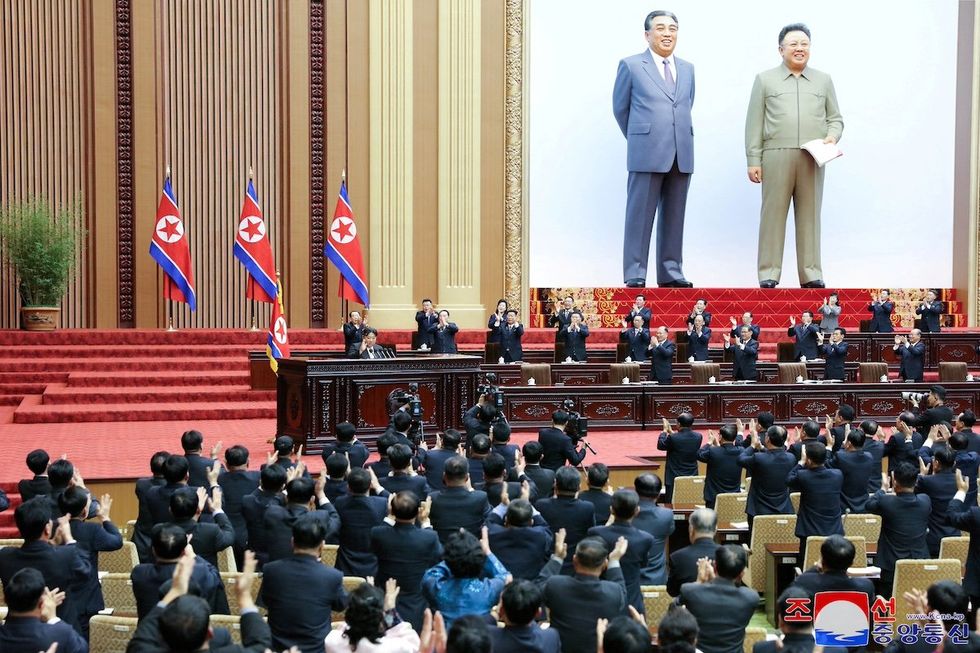On Tuesday, North Korean state media reported that Supreme Leader Kim Jong Un had proposed changing the country’s constitution to remove all references to reunification with South Korea and to frame Seoul as the country’s “primary foe.” It echoes the rejection of reunification Kim made in his New Year’s speech and comes a week after North Korean forces fired artillery shells across their disputed maritime border with South Korea.
What’s the signal? One can only glean at the surface level domestically, but the militaristic rhetoric seems to be preparing North Koreans for hard times to continue. The state will need to continue allocating scarce resources to protect itself from its enemies, South Korea and the United States, rather than develop the country.
Jeremy Chan, a senior analyst covering North Korea for Eurasia Group, says Kim may have one eye on elections in each country as well.
“By the end of this year, Kim could be looking at an incoming President Trump, who loves exchanging love letters and potentially could be sold on a deal that actually doesn't include denuclearization; maybe something like a nuclear freeze,” Chan said. “There's light at the end of the tunnel a bit for Kim strategically from where he stands.”
South Korea’s legislative elections in April have unpopular President Yoon Suk-yeol, a North Korea hawk, fighting an uphill battle against the opposition Democratic Party, but if Pyongyang wanted to help his dovish opponents, harsh rhetoric and artillery drills would seem counterproductive.
“If you parse Kim's remarks, he's not personalizing this to Yoon or even to the conservatives,” said Chan, explaining that Kim is threatening South Korea itself, and considers leaders from all its parties to be illegitimate.
Is Kim preparing for war? Some experts are worried he is, as Robert L. Carlin and Siegfried S. Hecker laid out last week in 38North, a specialist outlet on North Korea affairs.
It’s impossible to know Kim’s intentions, and even though the US and South Korea are all but guaranteed to destroy North Korea in an open war (but likely at a brutal cost in civilian lives), Yoon is not ignoring the possibility.
After the Oct. 7 massacre in Israel, Yoon ordered the military to beef up its reconnaissance – despite Pyongyang’s annoyance – and last month, he told troops deployed on the DMZ that if fired upon, they should “take retaliatory steps” first and ask questions later.



















